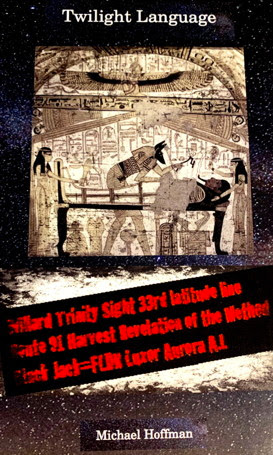Encountering Peace: The view from Cairo
What’s needed is stronger bridges, not higher walls
By Gershon Baskin
Jerusalem Post, Sept. 12, 2011
Walid has consistently demanded that Israelis be included at every meeting. I was privy to an email correspondence between Walid, other members of MECA and a new Libyan participant, in which the Libyan said he wouldn’t participate in any meeting that included Israelis. Walid and other Arab members told him directly that while it was certainly his right to boycott Israelis, MECA was a inclusive forum for all citizens of the Middle East, including Israelis. Six or seven Israelis had been scheduled to attend the Cairo meetings, but canceled due to the current political and security tensions. Being somewhat more familiar with traveling in the region, and knowing that I would be in Cairo with friends, I made up my mind to go as planned. I did decide, however, not to visit Tahrir Square, which has become a less than welcoming place for foreigners in general and Israelis in particular.
DESPITE HAVING a US passport, I always try to travel in the Arab world on my Israeli one, and this trip was no exception. I did, however, take some precautions. On the advice of some Israeli friends who work in security, I checked into the hotel on my US passport; a hotel clerk making a few dollars a day can easily be bribed by terrorist groups to provide information about Israeli guests. I also locked all of my Israeli documents in the room safe and carried only my US passport with me in my travels around Cairo. I only had to show it once, while visiting an open-air market behind the foreign ministry.
I was taking pictures and a young man stopped me and asked me who I was taking pictures for, adding that I required a permit. I told him in Arabic that I didn’t need a permit, that Egypt was a democracy now, but he insisted. I told him the pictures were for my private use, and showed him my US passport. He accepted my explanation, and then insisted I come with him to photograph some graffiti on the Foreign Ministry walls. With a big smile on his face, he proudly translated some of it: “death to Israel,” “cancel the peace treaty with Israel,” etc.
On Friday night, as the Israeli Embassy was under attack, I was sitting with an Egyptian friend in a coffee shop in Zamalek, where my hotel is. Zamalek is an island in the middle of the Nile where most of the embassies in Cairo are located. There a many foreigners in Zamalek and security is always on high alert. I heard shooting from the direction of Giza, where the Israeli embassy is located. I thought it was fireworks from a wedding celebration, such as I often hear from my home in Jerusalem. When I woke up the next morning, however, I learned of the horrible attack against the Israeli Embassy, and the failure of the Egyptian security forces to prevent it. My friends at the MECA meeting condemned the attack both publicly and in private, and also expressed their concern for my security and their solidarity, assuring me that they would protect me.
At the meeting, the well known professor and democracy activist Saad Eddin Ibrahim, who had been jailed and tortured by Mubarak, gave a brilliant presentation about the Egyptian revolution and how Tahrir square, and many other squares around Egypt, had been transformed into “Parliaments of the People.” In my speech, which followed Prof. Ibrahim’s, I tried to express the deep concern felt by Israelis at what we saw going on around us in “the neighborhood.” The “Parliaments of the People,” I said, were beginning to look like “Parliaments of the mobs.”
Viewed through Israeli eyes, I said, the neighborhood looked quite disturbing. Lebanon is ruled by Hizbullah – an Iranian proxy, and Gaza is controlled by Hamas – an offshoot of the Muslim Brotherhood. The West Bank could easily fall into Hamas hands as well. Egypt could easily be taken over by the Muslim Brotherhood. If the Syrian revolution is successful it, too, could be taken over by the Muslim Brotherhood, as could Jordan, if the Hashemite regime is overthrown. In addition, from the Israeli perspective Turkey is on its way to becoming a radical Islamic state. A scary picture indeed.
THE NARGILA boy in the coffee shop in Zamalek asked me where I was from. “Falestin,” I said. “Very good,” he replied, “we love Palestine ... I will kill all of the Israelis for you!” I asked him why he hated Israelis so much. Did he know any Israelis, I asked? No, and he didn’t want to, he replied. He hated the Israelis, he said, because they killed Palestinians and took their land, and because now they were also killing Egyptians. I asked him what he would think if Israel ended the occupation and made peace with a Palestinian state. After a brief pause, he said, “If they make real peace and free the Palestinians and let them have a state, we will have nothing against Israel, ahalan w’sahalan (welcome).”
This young man, educated on the street, and by Al Jazeera, probably knows almost nothing about the conflict, but his views reflect those of millions of Arabs all over the region, and millions of Turks as well. People across this region are willing to accept an Israel that lives in peace with its Arab neighbors. Israel is hated in the Arab and Muslim world not, as many Israelis believe, simply because they deny our right to exist. If Israel would only understand that its relations with the Palestinians determine the level of its acceptance in the region perhaps we would be at a very different place today.
People in the MECA meeting said that the 2002 Arab Peace Initiative was still on the table and serves as the basis for Israel to be a welcome member throughout the region. All of the Egyptians that I have spoken with condemned the attack against the Israeli embassy. The story on the street and among the youth leaders of the revolution is that the leaders of the mobs that torched the Ministry of Interior, the headquarters of the el-Ghad party and the Israeli embassy have been identified as members of the hated former internal security forces. They say that these people are actively working to undermine the revolution and to show that post-Mubarak Egypt is a lawless society where all security has broken down. They hope to hijack the revolution and to bring back the old regime. My first impulse was to dismiss this claim as just another Arab conspiracy theory, but after talking to some serious analysts and experts I changed my mind. It seems there is a very real possibility that these attacks were in fact carried out by anti-revolutionary “agents provocateurs.”
From my admittedly non-scientific reading of the Cairo street “map,” the Egyptian masses do not support the attack against the Israeli embassy. They do not support warm peace with Israel or forms of normalization because in their view Israel has not implemented the second chapter of the Israeli-Egyptian peace treaty of Camp David – ending the occupation, but they do understand and support the strategic importance of the peace for Egypt. Egyptians do not want to go to war against Israel.
I HAVE also been in Turkey more than 100 times, for joint Israeli-Arab meetings, mainly during the years of the second intifada when it was almost impossible to meet locally. I have met Turkish President Abdullah Gul and hosted him in Jerusalem when he was foreign minister. I know the current foreign minister Mr. Ahmet Davutoglu, from when he was an advisor to the party leader. We have remained in contact over the past years via email. The AKP in Turkey is not a radical Islamic party, nor are its leaders radical Muslims. The root cause of the free-fall of Israel/Turkey relations is the same as that of the Arab street’s hatred of Israel: the continuation and entrenching of the Israeli occupation, when there is a moderate – as understood by most of the world – Palestinian leadership willing to make peace with Israel.
Notwithstanding the fact that we are not solely responsible for the lack of peace, we have clearly not done enough to strive for real peace. The current events in Cairo and Ankara should be our wake-up call. Most of our leaders will respond by calling for higher walls, when what we really need are stronger bridges. An Israel reaching out to the Palestinians and willing to make peace with them – not an imaginary peace with a Palestinian state floating in the air, but one based on the 1967 borders – will find a welcoming neighborhood in Benghazi, Baghdad, Beirut, Amman, Cairo, Ankara, Ramallah and even in Gaza. (End quote; emphasis supplied).
Gershon Baskin is the founder and co-director of IPCRI, the Israel Palestine Center for Research and Information, he hosts a weekly radio show in Hebrew on All for Peace radio, and a voluntary columnist for The Jerusalem Post.
Gershon Baskin, Ph.D.
P.O. Box 9321, Jerusalem 91092
Cellphone: +972-(0)52-238-1715
gershonbaskin@gmail.com
***













1 comment:
Post a Comment